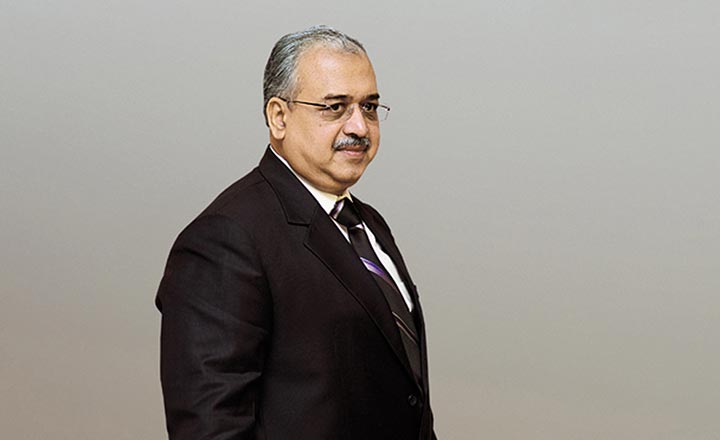Five years ago, Sudhir Valia was in a happy state of mind when he spoke to this magazine and made no attempt to conceal it. It had been barely two months since Dilip Shanghvi Family and Associates (DSA) picked up 23% stake in Suzlon Energy at Rs.18 per share in early 2015. Eyebrows were understandably raised about what Shanghvi, the founder of Sun Pharmaceuticals saw in the heavily indebted wind turbine maker as he cut a cheque for Rs.18 billion. That preferential allotment would eventually reduce the holding of the Tanti family from 30.94% to 24%, though control was to remain with them. It was also decided that DSA and Suzlon would form 50:50 joint venture for the development of 450 MW wind farms. More importantly, the money would come in handy to reduce Suzlon’s debt, which was now at a whopping Rs.170 billion.
In an elaborate conversation then with Outlook Business, Valia, Shanghvi’s brother-in-law and the one who structured the deal, said Suzlon “has technical capability but was not able to manage its finances too well.” When asked specifically about the investment trigger, Valia admitted this was a different scenario compared to pharmaceuticals. “Engineering is a subject that the management of Suzlon knows and financial engineering is something that we know,” he said with a laugh. That joy was not entirely unfounded with the Suzlon stock already having moved to Rs.24.5 at the time of the conversation or a cool 36% gain.
The story today could not have been more different. The stock quotes at Rs.5, DSA is down 75% on its investment and its holding stands diluted post the latest debt restructuring. The astute Valia had then said the criterion was not about the sector but more about recouping the investment made, “over three to five years.” Repeated requests for an interview were turned down for this story and a set of questions sent to him on the investment made in Suzlon met with a terse response. “I understand your concern about our investment. We still live in hope that the company has good technology and one day will give results,” is all that he was willing to say.
Both Shanghvi and Valia were then said to have been quite excited about the prospects of renewable energy in India. The former’s son, Aalok, had already set up a company called PV Power Technologies in 2008 with its business being residential and commercial solar rooftop installations, water pumping systems and telecom towers. Numbers sourced from the RoC show PV Power’s FY19 revenue at Rs1.88 billion with net profit of Rs.41.7 million. At the time of acquiring the stake in Suzlon, Valia made it clear there was no plan to grow PV Power. “I would think Suzlon getting into solar energy at some point would be a more logical progression,” he said. Nothing of consequence has come of Suzlon’s solar plans so far.











